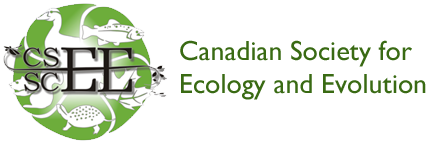MSc on investigating plant-insect community dynamics across deep time and environmental changes
MSc Project Description:
Plant-insect communities are a fundamental aspect of all terrestrial ecosystems, underpinning food webs, community structure, and agricultural systems. However, our current understanding of how plant-insect communities respond to environmental upheaval is incomplete; especially in our understanding of community recovery and restructuring after such events. Climate projections indicate that with increasing temperatures, our planet is likely to experience dramatic restructuring of terrestrial ecosystems, making a better understanding of potential plant-insect community responses critical to conservation and agricultural planning. Recent advancements in the synthesis of paleontology and neontology enable us to assess such community processes through multiple approaches. This M.Sc. opportunity will focus on the synthesis of approaches in community ecology, paleontology, evolutionary ecology, and other fields of ecology and evolution to investigate plant-insect community structure and response to environmental change.
Potential research questions include but are not limited to:
- Simulating plant-insect community network responses to various types of environmental upheaval, including agricultural plant-insect communities.
- New methods for extracting, analyzing, and storing information from plant and insect fossils (i.e. imaging techniques, database curation, etc.)
- Comparisons of fossil plant-insect communities to communities undergoing environmental change today.
We additionally anticipate a portion of this project to be focused on community outreach and engagement, considering the interest potential of fossils to the public. Prospective students who are also interested in new methods and approaches for scientific outreach are especially encouraged to apply. This master’s project will be supervised by Professor Shinichi Nakagawa and postdoctoral researcher Dr. Christine Sosiak. Elements of this project will be conducted in collaboration with the Royal Tyrrell Museum in Drumheller, Alberta; students who are interested in the fossil aspects of this research will be encouraged to conduct research there with collaborator Dr. Christopher West.
Position, salary, and location:
- The appointment will be for 2.3 years (starting Jan 2026: winter semester)
- The salary starts at ~$27,894/year for 2.3 years (guaranteed with teaching assistantships )
- Lab members will be expected to work at a newly refurbished lab space at the University of Alberta, Edmonton, one of Canada’s most affordable places to live [link].
Work descriptions and duties:
- Leading research synthesis or methodological projects in consultation with the PI and other collaborators (on research topics that align with the applicant’s interest and skills within the PI’s CERC program remit)
- Completing research projects, publishing them, and collaborating with other researchers at the Centre
- Disseminating research concepts and results to the public with a particular focus on groups underrepresented in science
Eligibility, necessary qualifications, and qualities:
- Bachelor’s degree in biology (ecology, evolution, environmental sciences), statistics, computer science, natural resources, or related fields
- Self-motivated and eager to learn new skills. While quantitative methods can be intimidating, if you are self-driven and open-minded, we assure you that you can learn these skills and become a world-class researcher
- Excellent organizational and communication skills
- We are open to applications from any country
- For students who are interested and make good progress in their research, transferring to a later PhD position is possible; this will be evaluated in discussion with the PI at a later date
Preferred experiences and skills:
- Coding experience is preferred but not required (i.e. R, Python, Julia, MATLAB)
- Interest in and willingness to think critically with a synthesis-centered mindset about current topics in ecology and evolution
- Prior research experience is recommended but not required
How to apply:
Please send the PI (Shinichi Nakagawa: snakagaw@ualberta.ca) an email with the following attachments (or a link from which the documents can be downloaded)
- A cover letter describing experiences and research interests
- Scientific CV
- Transcripts
- Contact details of three referees (two are fine too)
- A one-page (max) statement of research interests (please read the CERC application and discuss the link between your research interest and the CERC program).
- A one-page (max) diversity and social impact statement (describing strengths and experiences in equity, diversity, and inclusion, and/or social activities such as volunteering at learned societies and outreach activities, and/or other extra-curricular activities, and/or supervisory/teaching experiences)
- Please send the application by 31 May 2025 (earlier the better)
Important note:
The PI and the lab are committed to an equitable, diverse, and inclusive workforce and warmly welcome diverse and minority applicants, especially from historically marginalized and under-represented groups. Depending on their circumstances, part-time work arrangements will be considered.
Prospective applicants are also encouraged to contact the lab’s former and current members (see here) to learn how to work in the lab and with the PI.
